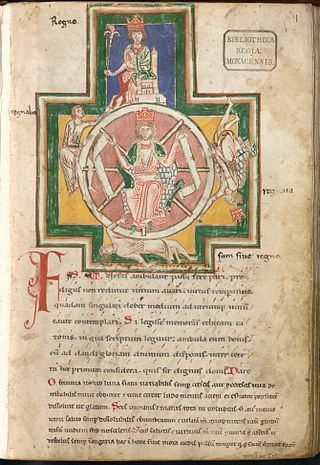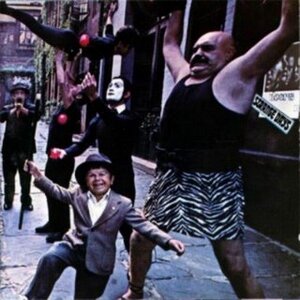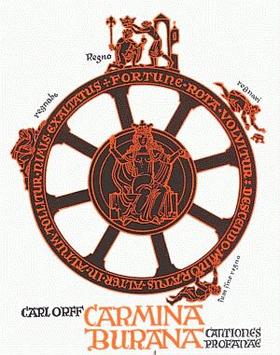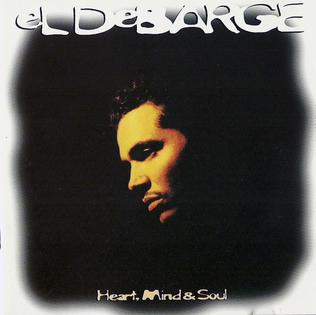
The Doors were an American rock band formed in Los Angeles in 1965, comprising vocalist Jim Morrison, keyboardist Ray Manzarek, guitarist Robby Krieger and drummer John Densmore. They were among the most influential and controversial rock acts of the 1960s, primarily due to Morrison's lyrics and voice, along with his erratic stage persona and legal issues. The group is widely regarded as an important figure of the era's counterculture.

Carl Heinrich Maria Orff was a German composer and music educator, who composed the cantata Carmina Burana (1937). The concepts of his Schulwerk were influential for children's music education.

Carmina Burana is a manuscript of 254 poems and dramatic texts mostly from the 11th or 12th century, although some are from the 13th century. The pieces are mostly bawdy, irreverent, and satirical. They were written principally in Medieval Latin, a few in Middle High German and old Arpitan. Some are macaronic, a mixture of Latin and German or French vernacular.

Strange Days is the second studio album by the American rock band the Doors, released on September 25, 1967 by Elektra Records, arriving eight months after their self-titled debut album. After the latter's successful release, the band started experimenting with both new and old material in early 1967 for their second record. Upon release, Strange Days reached number three on the US Billboard 200, and eventually earned a platinum certification from the Recording Industry Association of America (RIAA). It contains two Top 30 hit singles, "People Are Strange" and "Love Me Two Times".

Raymond Daniel Manzarek Jr. was an American keyboardist. He is best known as a member of the rock band the Doors, co-founding the group in 1965 with fellow UCLA Film School student Jim Morrison. Manzarek is credited for his innovative playing and abilities on organ-style keyboard instruments.

Naïve is the fourth studio album by German industrial band KMFDM, released on November 15, 1990, by Wax Trax! Records. It was recorded following KMFDM's return from their first visit to the United States and subsequent tour with Ministry. It was also the first record they released after signing directly to Wax Trax! Records.

"O Fortuna" is a medieval Latin Goliardic poem which is part of the collection known as the Carmina Burana, written in the early 13th century. It is a complaint about Fortuna, the inexorable fate that rules both gods and mortals in Roman and Greek mythology.

Carmina Burana is a cantata composed in 1935 and 1936 by Carl Orff, based on 24 poems from the medieval collection Carmina Burana. Its full Latin title is Carmina Burana: Cantiones profanae cantoribus et choris cantandae comitantibus instrumentis atque imaginibus magicis. It was first performed by the Oper Frankfurt on 8 June 1937. It is part of Trionfi, a musical triptych that also includes Catulli Carmina and Trionfo di Afrodite. The first and last sections of the piece are called "Fortuna Imperatrix Mundi" and start with "O Fortuna".

Watch Out! is a 1987 album released by R&B singer Patrice Rushen. This album was the only album Rushen released with Arista Records after leaving Elektra Records. The album produced several R&B hits for Rushen.

Back to Avalon is the sixth studio album by American singer-songwriter Kenny Loggins. Released in 1988, it yielded the hit singles "Nobody's Fool ", "I'm Gonna Miss You", "Tell Her", and "Meet Me Half Way", the last of which is a ballad which had already become a top 40 hit the previous year through the film Over the Top. It is the only studio album by Loggins to feature songs from motion picture soundtracks to date.

The Doors: Original Soundtrack Recording is the soundtrack to Oliver Stone's 1991 film The Doors. It contains several studio recordings by the Doors, as well as the Velvet Underground's "Heroin" and the introduction to Carl Orff's Carmina Burana. None of Val Kilmer's performances of the Doors' songs that are featured in the movie are included in the soundtrack.

Heart, Mind and Soul is the fourth album by American recording artist El DeBarge. It was released in 1994 on Reprise Records, and was produced by El DeBarge, Babyface, and Jermaine Dupri.

Burnin' is a studio album by American singer-songwriter Patti LaBelle. It was released by MCA Records on October 1, 1991, in the United States to mixed reviews. The album features several collaborations, including duets with Gladys Knight and Michael Bolton, and a reunion track with Nona Hendryx and Sarah Dash from Labelle. It yielded three Billboard R&B chart hits: "Feels Like Another One", "Somebody Loves You Baby " and "When You've Been Blessed ".

As the Band Turns is the sixth album by R&B band Atlantic Starr, released April 15, 1985 on A&M Records. Following the departure of initial lead singer Sharon Bryant, as well as 4 other members of the band. As The Band sees the introduction of new vocalist Barbara Weathers. This proved to be one of the band's more successful releases, yielding several R&B hits, such as "Freak-A-Ristic," "If Your Heart Isn't In It", and the smash quiet storm anthem "Secret Lovers." This would be the band's last release for A&M after a memorable, although inconsistent, run of hits throughout the early 80's.

When Love Finds You is the sixth studio album from American country music artist Vince Gill. It was released in 1994 on MCA Nashville. It features the singles "Whenever You Come Around," "What the Cowgirls Do," "When Love Finds You," "Which Bridge to Cross ," "You Better Think Twice" and "Go Rest High on That Mountain."

Oasis is Roberta Flack's first solo album of newly recorded songs since 1982's I'm the One. Released 1 November 1988, Oasis features the number-one U.S. singles, "Oasis" (R&B), and "Uh-uh Ooh-ooh Look Out ".

Born to Love is a 1983 studio album of duets by American singers Peabo Bryson and Roberta Flack. It was released by Bryson's label Capitol Records on July 22, 1983, in the United States. The album yielded the hit single "Tonight, I Celebrate My Love", written by Gerry Goffin and Michael Masser. The track "Maybe" was written and recorded for the film Romantic Comedy (1983).

Manzarek–Krieger was an American rock band formed by two former members of the Doors, Ray Manzarek and Robby Krieger, in 2002. They were also known as "The Doors of the 21st Century", "D21C", and "Riders on the Storm" after the Doors song of the same name. They settled on using "Manzarek–Krieger" or "Ray Manzarek and Robby Krieger of The Doors" for legal reasons, after acrimonious debates and court battles between the two musicians and Doors co-founder/ drummer John Densmore. They performed Doors material exclusively until the death of Manzarek in 2013.

Everlasting is the eleventh studio album by American singer Natalie Cole, released on June 14, 1987 by Manhattan Records. The album peaked at number 8 on Billboards Top R&B Albums chart and number 42 on the Billboard 200 chart.

"O Fortuna" is a movement in Carl Orff's 1935–36 cantata Carmina Burana. It begins the opening and closing sections, both titled "Fortuna Imperatrix Mundi". The cantata is based on a medieval Goliardic poetry collection of the same name, from which the poem "O Fortuna" provides the words sung in the movement. It was well-received during its time, and entered popular culture through use in other musical works, advertisements, and soundtracks beginning in the late 20th century.



















